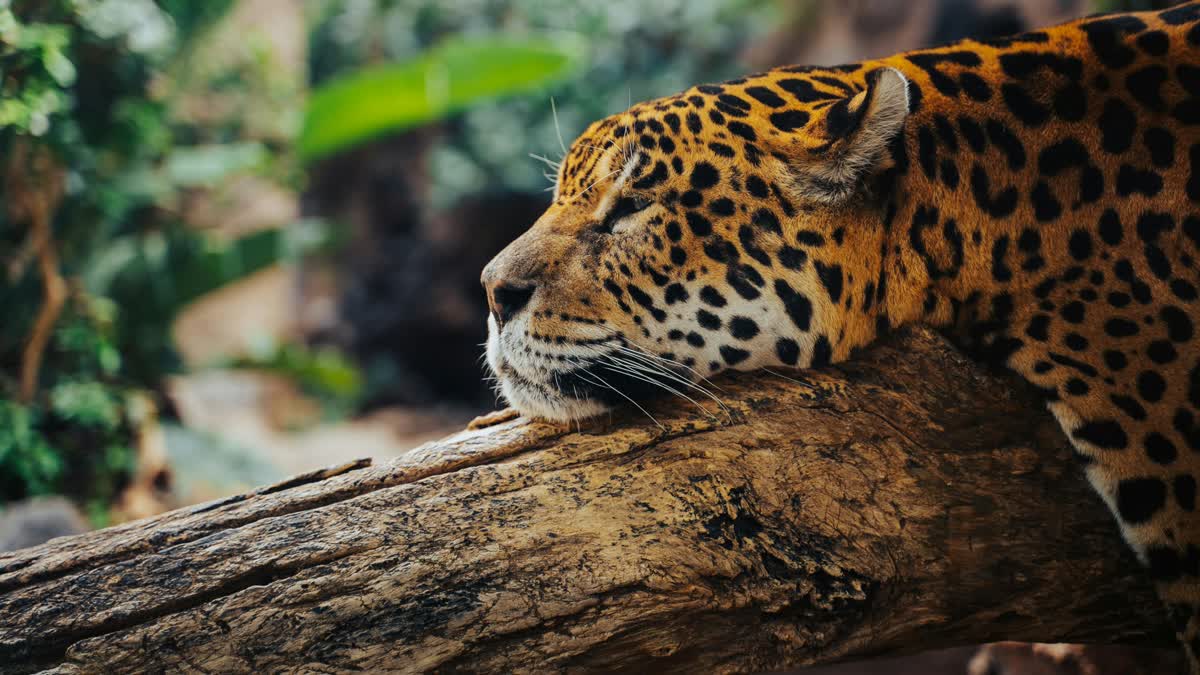Hyderabad: International Jaguar Day, observed on November 29, commemorates the magnificence of these iconic big cats. Established to raise awareness about the conservation needs of jaguars, this day also celebrates the cultural significance these majestic creatures hold in various societies across the globe
History- Since the 1970s, jaguars have been protected as endangered species. The hunting of these formidable creatures, along with illegal logging, deforestation, and the introduction of domestic animals, in addition to climate change and habitat changes, have all contributed to the decline in jaguar numbers over the past few decades. For the Jaguar 2030 Forum, delegates from fourteen different countries convened in New York at the United Nations Headquarters in March 2018.
The Jaguar 2030 Declaration, which detailed numerous globally cooperative actions for jaguar conservation, including the suggestion to establish an International Jaguar Day, was produced as a result of this forum. Brazil, one of the range countries that has adopted the jaguar as its symbol for biodiversity, is among those celebrating National Jaguar Day.
Jaguars require extra care and attention because they have lost up to 20% of their historical range in the last 15 years alone, and losses are believed to be about 50%. The World Wildlife Federation (WWF) launched a regional jaguar strategy in 2020 with the aim of raising the number of jaguars by 2030 while also protecting their habitat.
Significance- The day aims to shed light on the plight of jaguars, emphasising the urgent need for their conservation due to habitat loss, poaching, and human-wildlife conflicts. It's an opportunity to educate people about the vital role these apex predators play in maintaining the ecological balance of their habitats.
Objective- The primary objective of the day is to advocate for the protection and preservation of jaguars and their habitats. Conservation efforts focus on ensuring sustainable ecosystems where jaguars can thrive alongside other species.
Mission- Through awareness campaigns, educational programs, and wildlife initiatives, the mission is to promote coexistence between humans and jaguars while safeguarding their habitats. Conservationists work towards reducing conflicts, establishing protected areas, and enforcing laws against poaching and illegal wildlife trade.
Why there is a need to protect jaguars? Jaguars are crucial for maintaining biodiversity. As apex predators, they regulate prey populations, contributing to ecosystem health. They also hold cultural and spiritual significance in many indigenous cultures, symbolizing strength, power, and wisdom.
Jaguar Stats Worldwide- The International Union for Conservation of Nature (IUCN) classifies jaguars as "Near Threatened." With habitat fragmentation and human encroachment, their population faces risks. Roughly 64,000 jaguars remain in the wild, spread across Central and South America.
Jaguar Stats in India- Historically, jaguars were found in India, particularly in the forests of the northeast region. However, due to habitat loss and hunting, jaguars are now functionally extinct in India. The last recorded sighting dates back to the 20th century.
As we observe International Jaguar Day, it's crucial to recognise the urgency of protecting these elusive and vital creatures. Preserving their habitats and ensuring their coexistence with humans is paramount for the conservation of not just jaguars, but entire ecosystems they inhabit.



